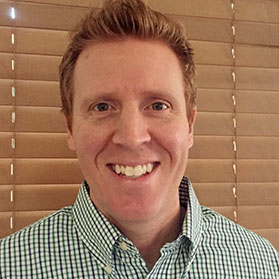By: Greg Douglas, LPC, LMHC
In my years of working with parents I have often heard similar stories. Parents reporting feelings of worry, anxiety, fear, and hopelessness all related to their child’s behavior. Of course it’s difficult to watch your child struggle in any way, and we as parents often feel the emotional sting when things aren’t as we’d want.
The question in my mind is often whether we as parents are making things harder on ourselves than they need to be. Are we taking on too much pressure in our roles as parents? Do we think we have to find the perfect answers or interventions to get our kids on track or to behave just as we’d like? What are we truly responsible for as parents?
Sheppard or Engineer: Which parent are you?
I love this idea that parents can be grouped in different ways depending on their philosophies. One of the simplest ideas I have come across is the idea of parents as sheppards or engineers.
As a sheppard parent you believe that your main parenting duties consist of providing your child a reasonably healthy environment that will give them the best chance to flourish. You provide the bottom-line essentials like food, water, shelter as well as emotional support, nurturing, guidance, and limits. Essentially, a sheppard parent does their very best to set their child up for success through a healthy environment and reasonable interventions.
A sheppard parent believes that they have an integral role to play in their child’s life, yet also acknowledges that they are limited to the control they have. Sheppard parents tend to see their role much like that of a sheppard looking over a flock of sheep (hence the name).
Core Beliefs of the Sheppard Parent:
- I am responsible for providing a healthy environment for my child
- I am responsible to intervene providing nurturing, guidance, and limits as needed
- I am not in charge of the choices my child makes, but rather I am responsible for my responses to their behavior
- My child’s behavior is not a commentary on my abilities as a parent
- If my child is struggling, I will take reasonable steps to provide adequate support yet do not allow myself to take on unneeded stress on an individual level
An engineer parent believes that their parenting duties are to intervene on an ongoing basis in a way that shapes their child’s behavior and life in a pre-determined direction. The engineer parent provides all the necessities as well, but their belief that they can shape and mold their child leads them to often feel stressed and pressured to “make things perfect.” The engineer parent is often tracking their child’s behavior so closely that every issue becomes a cause for concern. What could be a normal behavior for a child depending on their developmental state often becomes concerning for an engineer parent. Engineer parents believe that they are very much in control of how their child’s life progresses. They believe that if the right strings are pulled the child can be shaped in a way the parent would be happy with. Engineer parents see their role much more like an engineer working on a project where they can control the outcome based on carefully considered interventions.
Core Beliefs of the Engineer Parent:
- I am responsible for every aspect of my child’s life
- I can shape and mold my child’s thinking, behaviors, and emotions through intervening
- My child’s behavior is a commentary on my abilities as a parent
- If my child is struggling it is because I am not doing something well enough to help them and I take on large amounts of emotional stress and turmoil as a result
- Which way to go?
I believe that most parents feeling large amount of emotional stress are subscribing to beliefs in line with that of an engineer parent. These parents feel extreme pressure to make all the “right choices” that will lead to ideal outcomes. I think we must keep in mind that children are shaped by both nature and nurture. We could provide the same healthy environment for multiple children and have totally different outcomes in terms of behavior, academics, and relational success.
Adopting beliefs and mindsets more in line with the sheppard parent will allow the best of both worlds. You are able to focus on providing a healthy environment and adequate support, yet are not subjected to the intense stress and pressure of having to do things perfectly. If you have been struggling with intense emotions surrounding your role as a parent, take a close look at how you view your role. If you are making yourself responsible for every aspect of your child’s life, there is another option. Knowing that you do hold very important responsibilities yet cannot be completely in charge of your child’s actions often leads to less stress and more enjoyment as a parent.
How to Connect:
If you’ve been struggling with finding a balance with your parenting and if it has impacted your relationship with yourself, your partner, or your child, please feel free to reach out. You can find Douglas Counseling online at www.DouglasCounseling.com and can reach us by phone at (503) 388-6611.

